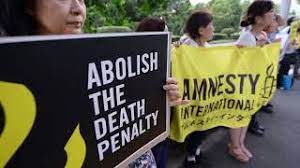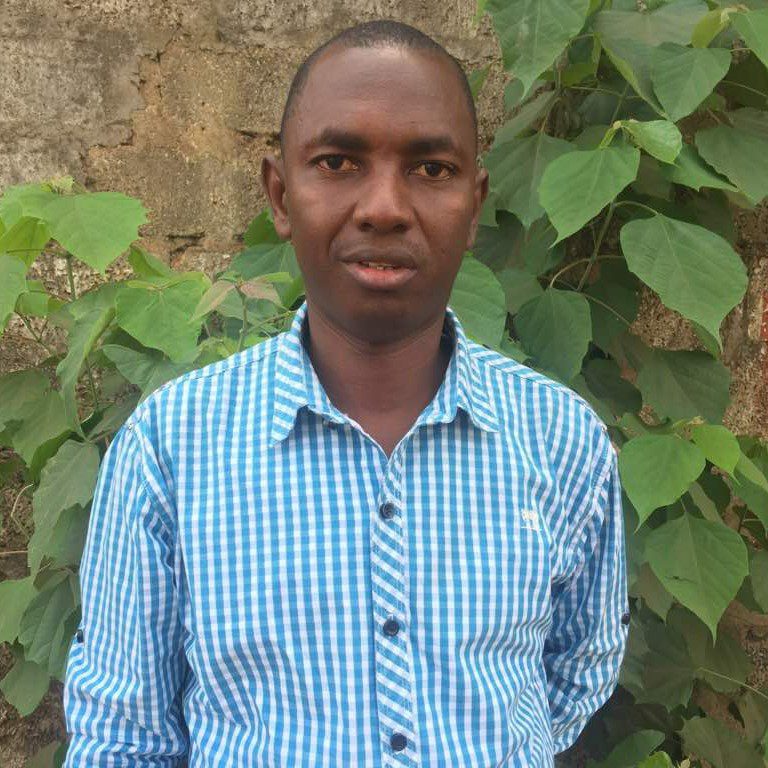
$90 of $23,000 raised
Some countries execute people who were under the age of 18 when the crime for which they have been convicted was committed, others use the death penalty against people with mental and intellectual disabilities and several others apply the death penalty after unfair trials – in clear violation of international law and standards. People can spend years on death row, not knowing when their time is up, or whether they will see their families one last time.
The death penalty is the ultimate cruel, inhuman and degrading punishment. Amnesty International opposes the death penalty in all cases without exception – regardless of who is accused, the nature or circumstances of the crime, guilt or innocence or method of execution.
Amnesty International holds that the death penalty breaches human rights, in particular the right to life and the right to live free from torture or cruel, inhuman or degrading treatment or punishment. Both rights are protected under the Universal Declaration of Human Rights, adopted by the UN in 1948.
Over time, the international community has adopted several instruments that ban the use of the death penalty, including the following:
Although international law says that the use of the death penalty must be restricted to the most serious crimes, meaning intentional killing, Amnesty International believes that the death penalty is never the answer.
Amnesty International has never felt more hopeful that this abhorrent punishment can and will be relegated to the annals of history
Agnès Callamard, Secretary General, Amnesty International
The use of the death penalty for crimes committed by people younger than 18 is prohibited under international human rights law, yet some countries still resort to the death penalty in these situations. Such executions are few compared to the total number of executions recorded by Amnesty International each year.
However, their significance goes beyond their number and calls into question the commitment of the executing states to respect international law.
Since 1990 Amnesty International has documented at least 163 executions of people who were below the age of 18, in 10 countries: China, the Democratic Republic of Congo, Iran, Nigeria, Pakistan, Saudi Arabia, South Sudan, Sudan, the USA and Yemen.
Several of these countries have changed their laws to exclude the practice. Iran has executed more than twice as many people who were below the age of 18 at the time of the crime as the other nine countries combined. At the time of writing Iran has executed at least 113 of them since 1990.
In 2022, most known executions took place in China, Iran, Saudi Arabia, Egypt and the USA – in that order.
China remained the world’s leading executioner – but the true extent of its use of the death penalty is unknown as this data is classified as a state secret; the global figure of at least 883 excludes the thousands of executions believed to have been carried out there.
Excluding China, 90% of all reported executions took place in just three countries – Iran, Saudi Arabia and Egypt.
*This map indicates the general locations of boundaries and jurisdictions and should not be interpreted as Amnesty International’s view on disputed territories.
**Country names listed reflect nomenclature in May 2023
Amnesty International recorded at least 2,016 death sentences in 52 countries in 2022, a slight decrease from the total of 2,052 reported in 2021. At least 28,282 people were known to be under sentence of death globally at the end of 2022.
Amnesty International recorded at least 883 executions in 20 countries in 2022, up by 53% from 2021 (at least 579 executions).
Execution is the ultimate, irrevocable punishment: the risk of executing an innocent person can never be eliminated. Since 1973, for example, more than 191 prisoners sent to death row in the USA have later been exonerated or released from death row on grounds of innocence. Others have been executed despite serious doubts about their guilt.
Countries who execute commonly cite the death penalty as a way to deter people from committing crime. This claim has been repeatedly discredited, and there is no evidence that the death penalty is any more effective in reducing crime than life imprisonment.
In many cases recorded by Amnesty International, people were executed after being convicted in grossly unfair trials, on the basis of torture-tainted evidence and with inadequate legal representation. In some countries death sentences are imposed as the mandatory punishment for certain offences, meaning that judges are not able to consider the circumstances of the crime or of the defendant before sentencing.
The weight of the death penalty is disproportionally carried by those with less advantaged socio-economic backgrounds or belonging to a racial, ethnic or religious minority. This includes having limited access to legal representation, for example, or being at greater disadvantage in their experience of the criminal justice system.
The authorities in some countries, for example Iran and Sudan, use the death penalty to punish political opponents.
For over 45 years, Amnesty International has been campaigning to abolish the death penalty around the world.
Amnesty International monitors its use by all states to expose and hold to account governments that continue to use the ultimate cruel, inhuman and degrading punishment. We publish a report annually, reporting figures and analysing trends for each country. Amnesty International’s latest report, Death Sentences and Executions 2022, was released in May 2023.
The organization’s work to oppose the death penalty takes many forms, including targeted, advocacy and campaign based projects in sub-Saharan Africa, Asia-Pacific, Americas and Europe and Central Asia , and Middle East and North Africa regions; strengthening national and international standards against its use, including by supporting the successful adoption of resolutions by the UN General Assembly on a moratorium on the use of the death penalty; and applying pressure on cases that face imminent execution. We also support actions and work by the abolitionist movement, at national, regional and global level.
When Amnesty International started its work in 1977, only 16 countries had totally abolished the death penalty. Today, that number has risen to 112 – more than half the world’s countries. More than two-thirds are abolitionist in law or practice.
Thanks to Amnesty’s campaigning efforts, the execution of Hafez Ibrahim, from Yemen, was stopped not once, but twice. Hafez, who was accused of a crime he insists he didn’t commit, first faced a firing squad in 2005. He was taken to a small yard in a Yemeni prison and brought before a row of officers with rifles in hand. He thought that moment would be his last.
Just before he was about to be shot, he was taken back to his cell, with no explanation. “I was lost, I did not understand what was happening. I later learned that Amnesty International had called on the Yemeni President to stop my execution and the message was heard,” Hafez said.
In 2007, Hafez was about to be executed again when he sent a mobile text message to Amnesty International. “They are about to execute us.” Hafez said.
It was a message that saved his life. The message sparked an international campaign, persuading the President to stop the execution for a second time.
Now Hafez is a lawyer helping juveniles who languish on death row corridors across Yemen.


Amnesty International’s work to abolish the death penalty is also bolstered by its incredible activists, who take it upon themselves to campaign against this abhorrent practice.
Souleymane Sow, has been volunteering with Amnesty International since he was a student in France. Inspired to make a difference, he returned to Guinea, set up a local group of Amnesty International volunteers and got to work. Their aim? To promote the importance of human rights, educate people on these issues and abolish the death penalty in Guinea. Along with 34 NGOs, they finally achieved their goal in 2017.
“My colleagues and I lobbied against the death penalty every day for five months. In 2016, Guinea’s National Assembly voted in favour of a new criminal code which removed the death sentence from the list of applicable penalties. Last year [2017], they did the same in the military court, too,” said Souleymane.
“It was the first time so many NGOs had come together to campaign on an issue. People said they were happy with our work and they could see that change is possible. Most of all, it inspired us to continue campaigning.”
It was such an incredible achievement – and it showed the importance of people power.
Souleymane Sow
